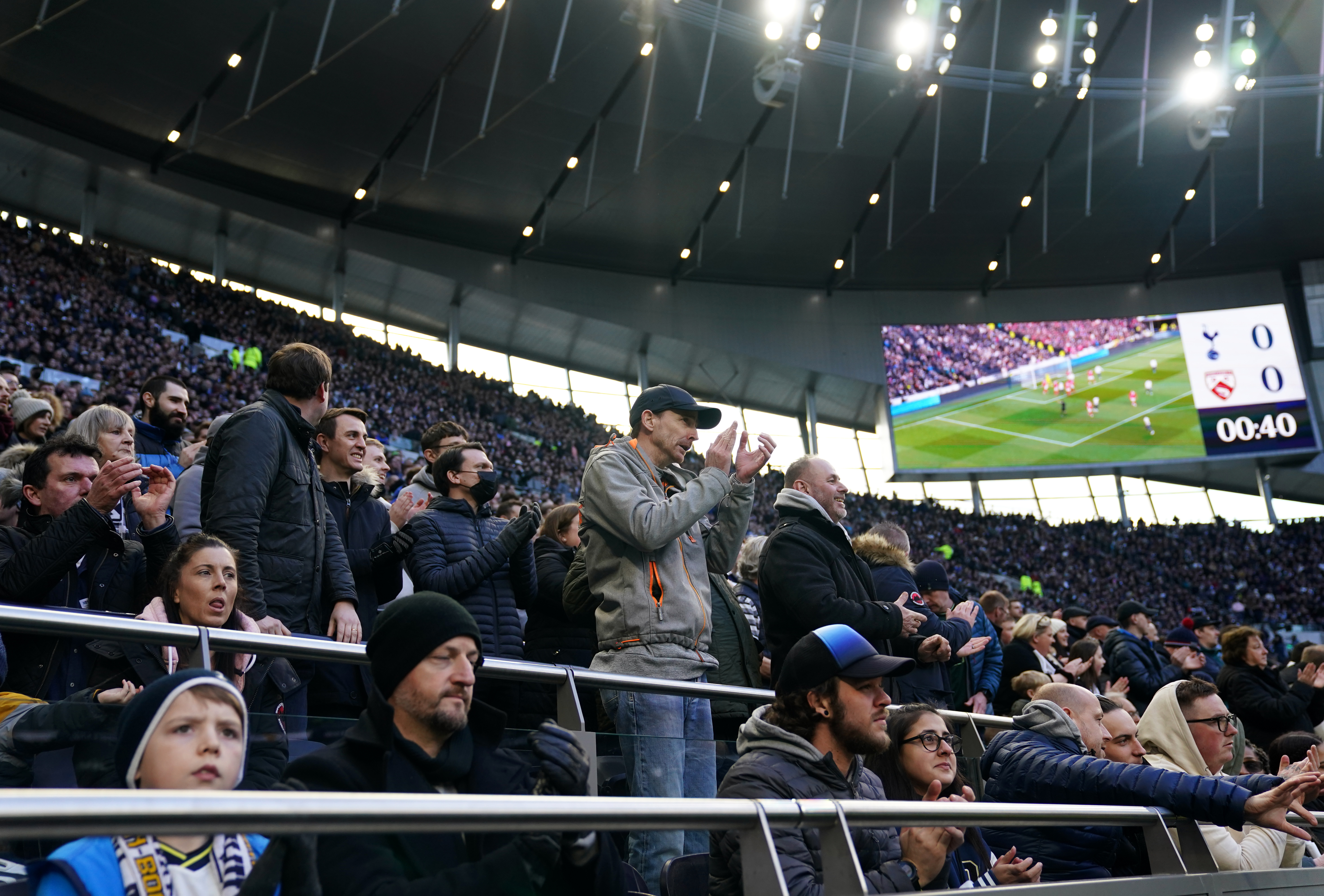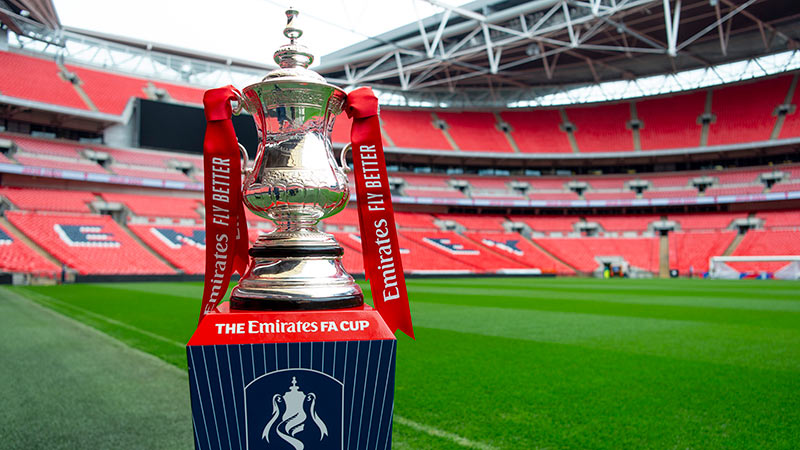Premier League and Championship clubs given green light over safe standing areas

All clubs in the top two tiers of English football can apply to operate licensed safe standing areas next season, the Government has said.
Cardiff, Chelsea, Manchester City, Manchester United and Tottenham took part in a safe standing pilot in the second half of last season and Brentford, QPR and Wolves will now join those clubs in offering designated areas for home and away fans from the start of the 2022-23 season.
The Government also confirmed that Wembley would also offer limited safe standing for fans from both sets of clubs at domestic matches later in the season, whilst other clubs are expected to apply as the season progresses.
The Football Association will trial safety rails at England’s Nations League match against Germany in September, but at that stage spectators must remain seated.
Once the trials are completed, and should approval be given by the Sports Grounds Safety Authority (SGSA), 892 seats in the lowest tier behind each goal – 1,784 seats in total – will be in designated safe standing areas.
Sports Minister Nigel Huddleston had said in May he was “minded” to offer the option to all Premier League and Championship clubs on the back of interim findings from independent research on the pilot.
The pilot marked the end of a blanket ban on standing in the top two tiers of English football which had been in place for more than 25 years, with those clubs having been required to provide all-seated accommodation since August 1994 in the wake of the 1989 Hillsborough disaster, where 97 Liverpool fans lost their lives.
Get FourFourTwo Newsletter
The best features, fun and footballing quizzes, straight to your inbox every week.
It is understood Liverpool are not considering introducing safe standing for next season, but may extend or increase their existing rail seating provision having run a separate club pilot last season.

Huddleston told the PA news agency: “We’re confident now that we can roll out safe standing.
“We’ve engaged with lots of stakeholders, including importantly with Hillsborough families, because it’s really important that we do take everybody’s views and opinions on board.
“Fans want it, we can do it safely, and I think it’s a good day for football.”
The report on safe standing, compiled by CFE Research, acknowledged the rise in anti-social behaviour and disorder at football matches during last season but said this was not attributable to the introduction of safe standing areas.
Pitch invasions marred a number of end-of-season matches, but the report found that such invasions were actually more difficult from safe standing areas because the barriers limit movement downwards towards the pitch.
The report found the barriers also help to protect against progressive crowd collapse, where supporters surge forward and push into people in the rows in front, creating a domino effect.

It also found no evidence the safe standing areas led to an increase in standing in other parts of the stadium.
More than half of fans surveyed in the research – 52 per cent – said they felt safer with the introduction of safe standing areas, with only five per cent saying they felt less safe.
However, the research did report some “isolated incidents” of fans climbing onto the barriers, with one supporter surveyed saying they suffered a back injury after someone fell off a barrier onto them, forcing them off work for three months.
The majority of respondents – 85 per cent – said they had never, or rarely, seen such incidents but the report urged clubs and the SGSA to take steps to mitigate the risk.
These included comprehensive and high-quality CCTV footage, asking away club stewards to support local stewards, updated codes of conduct specifically prohibiting such behaviour and disciplinary action against those who engage in it.
Campaigners have highlighted that leaving seats unlocked assists those wishing to climb onto the barriers, but the report did not recommend altering the advice that seats should remain unlocked, so that supporters have the option to sit during the match if they wish to.
The report also highlighted that ambulant disabled supporters’ experience had been negatively impacted by the introduction of safe standing areas and that clubs should consult with all supporter groups, including Disabled Supporter Associations, to fully understand the ambulant disabled perspective alongside that of those using wheelchair bays.
